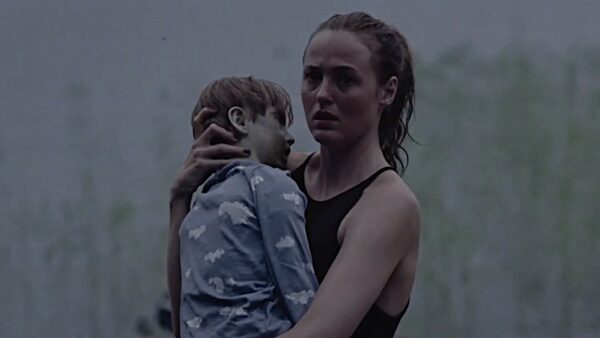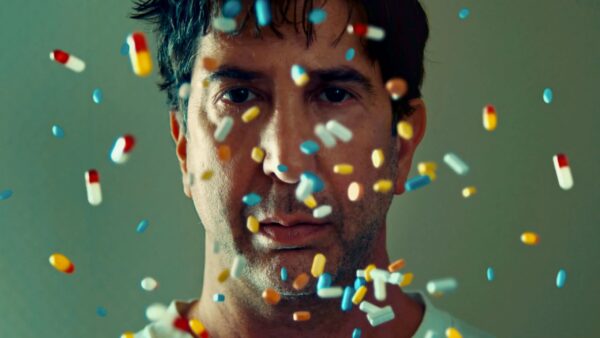Film Review: Sundance 2024 — Dispatch #1, Life, Death, and Daring
By Peg Aloi
Three sure-handed debut movies at this year’s Sundance Film Festival, including a documentary directed by Lucy Lawless and features from Thea Hvistendahl and Jack Begert.
Sundance is the proving ground of American and international independent cinema. This is where films go to acquire distribution. Unlike other comparably prestigious festivals, which occasionally screen high profile films whose distribution is set, Sundance is almost entirely made up of premieres and largely-unseen work. The festival lineup of documentaries has been particularly strong in recent years. There have also been some exceptionally fine low budget films, like 2021’s We’re All Going to the World’s Fair by Jane Schoenbrun, whose new film I Saw the TV Glow received enthusiastic praise (I was not able to see it, alas). Sundance 2024 was a live and online hybrid event, unlike 2022 which was entirely online, or 2021 which was a combination of digital and “live via satellite (public health permitting)” screenings. Still, digital access, for both audiences and press, was unfortunately quite limited this year — frustrating, to say the least. I had some scheduling challenges when it came to watching twenty feature films during the four-day viewing window. But I managed to see some impressive films, and look forward to seeing how they fare once they acquire distribution and have a wider roll out.

Margaret Moth in Never Look Away. Photo: Courtesy of Sundance Institute
Never Look Away was my first screening, in tandem with a brief but wonderful interview with first-time director Lucy Lawless, the well-loved New Zealand actress famous for creating the role of Xena: Warrior Princess. (She can be seen more recently in Spartacus and Top of the Lake.). This debut documentary chronicles the career of Margaret Moth, a New Zealand-born war photographer who earned the 1992 Courage in Journalism Award from the International Women’s Media Foundation. Lawless has crafted a wide-ranging, utterly engrossing portrait that honors Moth’s iconoclastic approach to her life and career. The photographer’s fearless demeanor put her in harm’s way constantly, and her personal relationships were intense and unorthodox. After she was grievously injured in a war zone, Moth’s life was radically changed. Yet her condition didn’t deter her from continuing her career as a skilled and brave journalist. Lawless was granted access to fascinating archival footage of Moth; she told me that some of this material came her way because she was “a name” in the New Zealand film community. Lawless has been wanting to tell Moth’s story for years; this film is a labor of palpable love and loyalty. (When this film receives its wide release, stay tuned at the Fuse for my full interview with Lawless.)

A scene from Handling the Undead. Photo: Courtesy of Sundance Institute
The darkly-themed, visually beautiful Handling the Undead (Håndtering av udøde) is a stunning debut by filmmaker Thea Hvistendahl. Set in Oslo in summer, it unfolds via a ‘real-time’ feeling mode as the bodies of recently dead people seem to be reanimating. But this subtle Swedish thriller, which lightly peers over the edge of the horror genre, is much more than a conventional zombie narrative. With deep emotion and quiet intensity, the story explores this unlikely occurrence, grounding the macabre in all-too-realistic feelings: shock, grief, and enduring (but often complicated) love. Actors Renate Reinsve and Anders Danielsen (who starred in the 2022 Sundance hit The Worst Person in the World) lead a powerful cast who convey this unusual material with enormous skill and pathos. Handling the Undead‘s beautiful score, by composer Peter Raeburn, won the festival’s World Cinema Dramatic Special Jury Award for Original Music. Hvistendahl co-adapted the screenplay with John Ajvide Lindqvist, the author of the eponymous novel. Handling the Undead is an innovative hybrid, a tonally complex film that is part elegy, part magic realism, and part unimaginable terror. All of these ingredients are melded into a haunting, human tale of loss and resilience.

David Schwimmer in a scene from Little Death. Photo: Courtesy of Sundance Institute
Little Death is a quirky comedy that injects doses of high-octane thriller-level energy into its odd narrative. The film won the festival’s NEXT Innovator award, given to a US film for bold, original storytelling. David Schwimmer stars as Martin, a screenwriter who is struggling to produce a new script for a life-changing career opportunity — as he is suffering from a self-induced midlife crisis. His wife (Jena Malone) is supportive, but increasingly impatient with Martin’s self-absorbed existential angst. A parallel storyline stars Talia Ryder and Euphoria’s Dominic Fike cast as close friends who are reluctant drug dealers. It wouldn’t do to give away too much of the plot; the film’s suspense relies on some unusual but compelling plot choices, including having Gaby Hoffman play Martin for a time — after he has imagined his protagonist as a woman. At times, these choices feel self-consciously experimental, but the proceedings remain edgy and intriguing throughout. Produced by Darren Aranofsky, this film is a sure-handed debut feature from director Jack Begert, co-written with Dani Goffstein. Little Death‘s unexpected trajectory will keep viewers guessing.
Peg Aloi is a former film critic for the Boston Phoenix and member of the Boston Society of Film Critics, the Critics Choice Awards, and the Alliance for Women Film Journalists. She taught film studies in Boston for over a decade. She writes on film, TV, and culture for web publications like Time, Vice, Polygon, Bustle, Mic, Orlando Weekly, and Bloody Disgusting. Her blog “The Witching Hour” can be found on substack.
